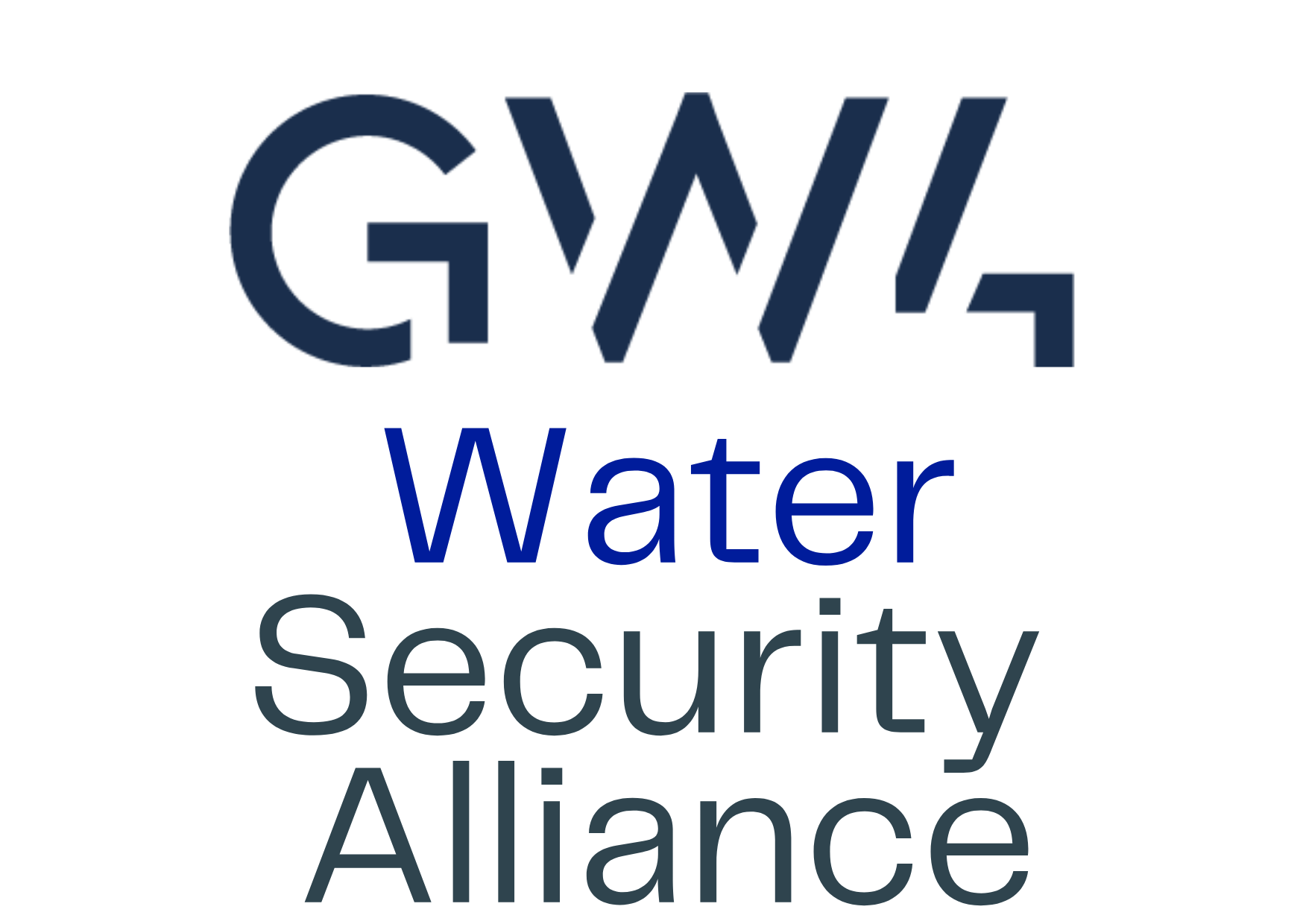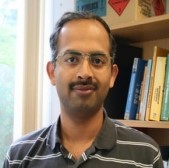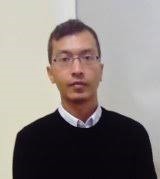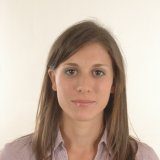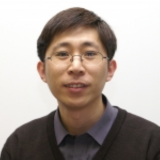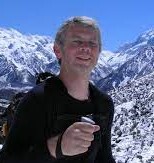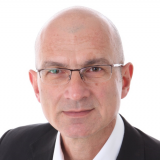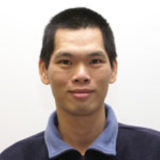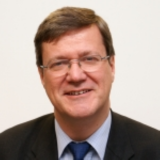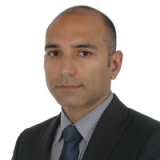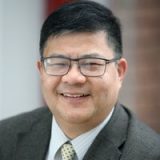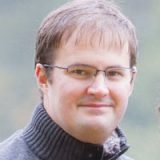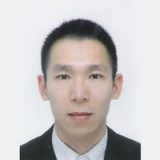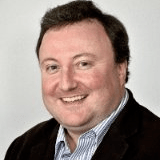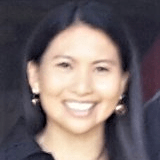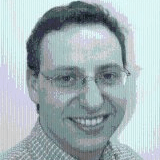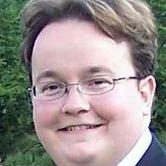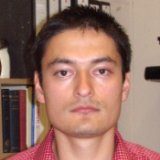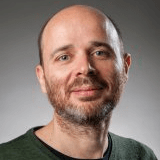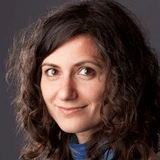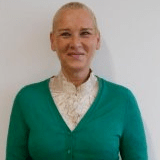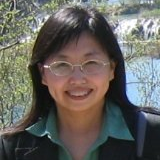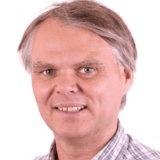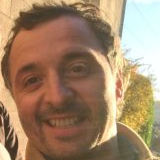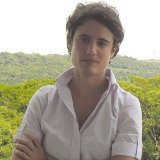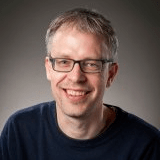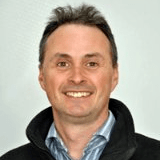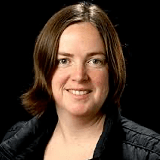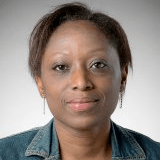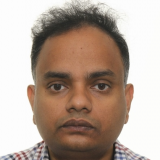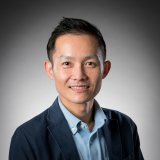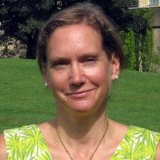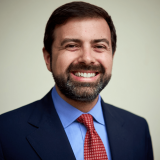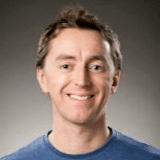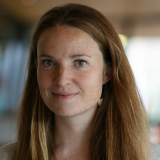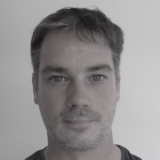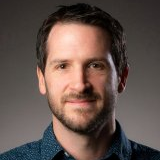Prakash is academic lead for the civil and structures research group at Exeter. His research interests are broadly in the design and management of civil infrastructures, such as bridges. He has significant experience in: the experimental and numerical modelling of flow and scour (erosion) around hydraulic structures such as bridge piers; the use of applied computing techniques including Building Information Modelling (BIM) for construction automation and design; the development of finite element modelling-based and data-driven strategies for interpreting measurements from bridge structural health monitoring; and the application of optimization methods for structural design problems (e.g. design of trusses and moment-resisting steel frames).
Peter Melville-Shreeve
Dr Peter Melville-Shreeve has worked in consultancy, startups and academic roles over the last decade. He works closely with the Chartered Institution of Water and Environmental Management’s (CIWEM’s) policy team to support sustainable water management systems and chair’s CIWEM’s Water Reuse Task & Finishing Group. Much of Peter’s early research focusses on rainwater management systems and the need for dual purpose designs – which can mitigate droughts and floods. His thesis highlighted the opportunities for Internet of Things technologies to be harnessed to reduce water demand AND manage stormwater flood risk. He consequently founded and exited a technology business which developed analytics and control systems to enable such technologies to be implemented at a range of scales.
Shams Rahman
I am a hydrologist interested in groundwater dynamics, surface water-groundwater interactions, and the influence of groundwater dynamics on land surface and lower atmospheric processes.
Rich Crane
Rich’s key research and teaching areas are extractive metallurgy, materials science, nanotechnology and applied geochemistry for a range of applications including the development of novel mining techniques, mine site reclamation, waste treatment, water treatment and contaminant transport.
More information on Rich’s institutional profile
Valentina Noacco
Valentina’s research interests include the development of tools and workflows to transfer sensitivity analysis methods and knowledge to industrial practitioners. This knowledge transfer aims at improving the consideration of uncertainty in mathematical models used in industry. Her current project aims to transfer methods, tools and expertise on sensitivity analysis to the (re)insurance sector in order to facilitate more informed decisions about the risks being underwritten.
Guangtao Fu
Guangtao’s research is focused on developing and applying new computer models, data analytics and artificial intelligence tools to tackle urban water challenges in water supply resilience, network leakage, flood risk, urban stormwater and wastewater management.
Raziyeh Farmani
Raziyeh specialises in urban water systems modelling, water resources management and asset management and has expertise in multi-objective optimisation of water networks. Her research interests covers evolutionary optimisation, artificial intelligence and data mining.
Daniel Slocombe
Daniel’s research includes studying microwave activation of catalytic processes, synthesis of functional oxides, dielectric spectroscopy and new methods using magnetic resonance phenomena.
Devin Sapsford
Devin’s research focuses on minewater treatment technologies; recovery of metals from waste and biogeochemistry.
Ross Woods
Ross’s research interests cover topics including hydrology, water resources, hazards and hydroclimatology.
Rafael Rosolem
Rafael is an ecohydrometeorologist with an interest in understanding the processes and interactions that happen in the soil-vegetation-atmosphere domain, in particular how soil moisture and evapotranspiration are interconnected. He combines hydrological and land models with field experiments available from different regions facing environmental pressures such as droughts and deforestation. His current interests include improving predictions of extreme hydrometeorological events in developing countries (Africa and South America) where data availability is limited.
Slobodan Djordjevic
Slobodan researches the development and application of advanced methodologies and software tools for water management. These include: drainage and floods simulation, impacts of flooding, effects on human health and impacts on road transportation, resilience to diverse extreme weather events in the context of climate change, tidal energy extraction, water quality modelling, river and coastal engineering, water-food-energy nexus, cascading effects between water, waste, energy, transportation and other infrastructure systems, nature-based solutions, and drought risk management.
Michael Harbottle
Michael’s research interests include biotechnology in contaminated land remediation; lectrical properties of soil and groundwater; resource recovery from waste and biogeotechnics.
Albert Chen
Albert’s research focuses on water and human environment systems. Particular focus is on: hydraulic modelling, urban drainage, flood forecasting, innovation technology applications, water-food-energy-ecosystems nexus, climate change impact on critical infrastructure, prediction of water-borne disease, hazard impact and cascading effects assessment, and mitigation and resilience strategies.
Michaela Bray
Michaela specialises in numerical weather modelling; real-time flood forecasting (raingauge network analysis, real-time updating) as well as remote sensing and Geographic Information System; climate change hydroinformatic technologies.
DAVID BUTLER
David’s research area is urban water management, including sustainable and resilient water systems, integration and control and water-energy-carbon interactions.
Pablo Ouro Barba
Pablo’s main area of expertise relates to the computational modelling in offshore renewable energy (tidal stream turbines and wind turbine farms); turbulence in environmental flows and hydraulics; or multi-phase flows: Eulerian-Eulerian (free-surface) and Eulerian-Lagrangian (sediments). He also works on the development of river turbine arrays for developing countries.
Reza Ahmadian
Reza’s research includes flood risk management including: flash flood and hazard, Sustainable Flood Management, evacuation planning,
water quality and sediment transport modelling. His work includes modelling bacteria, viruses, nutrients and emerging pollutants, monitoring for bathing water and aquaculture sites, warning and autonomous systems, water security.
Shunqi Pan
Shunqi’s research covers the physical and numerical modelling of coastal and estuarine processes; prediction of large-scale extreme waves and surge; climate change impacts to the marine environment; coastal defences and flooding and marine renewable energy.
Tom Beach
Tom’s research covers the data science associated with monitoring and sensing of built environment assets ( including optimisation and artificial intelligence) including the management and integration of disparate data sources.
Victoria Garcia Rocha
Victoria’s research covers materials science, chemistry and engineering of carbon-based composite materials and ceramics.
Yacine Rezgui
Yacine specialises in modelling, data analytics, informatics (semantics), knowledge management; catchment and urban water management; resilience of the built environment to natural disasters; smart cities.
Zhihua Xie
Zhihua’s research covers computational fluid dynamics, turbulence modelling, interfacial and multiphase flows, water wave mechanics, hydrodynamics, hydraulics and marine renewable energy.
Tom Arnot
Tom’s research falls into two main areas: the first is sustainable water and waste water treatment, and the second is novel drug delivery systems for healthcare and food applications.
Sheila Samsatli
Sheila’s research interests focus on multi-scale mathematical modelling and optimisation, and their application to engineering problems (such as process synthesis and integration, whole systems design and operation, production planning and scheduling, supply/value chains, location, transportation problems etc). She is interested in applying these ideas to water networks and infrastructure, and within the water-energy-food nexus and the marine environment.
Robert Watson
Robert’s research focuses on RF engineering, antennas, radio propagation and GNSS.
Nicholas Howden
Nicholas’ research aims to provide a better understanding of how climate, land use and land management affect the quantity and quality of surface and groundwater over the short and long term. Interests include the diffuse transport of nitrate from agricultural watersheds.
Miguel Rico-Ramirez
Miguel’s research interests fall in the area of flood forecasting with radar and numerical weather prediction models for the real-time prediction and management of severe storms.
Pedro Estrela
Pedro’s research focuses on the development of label-free electrical biosensors and chemical sensors for a wide range of applications such as medical diagnostics and environmental monitoring. His research interests include label-free electrical detection of biomolecular interactions, biologically sensitive field-effect devices, detection of DNA, proteins, bacteria, cells, ions and small molecules, electrochemical impedance spectroscopy of biological systems, use of solid state devices in aqueous environments, surface biofunctionalization, electronic addressing of microarrays, nanobiosensors and microfluidics.
Mirella Di Lorenzo
Mirella’s expertise lies at the interface of bioelectrochemistry, microengineering, microfluidics, sensing technology and material science. Her work addresses development challenges such as the water-energy-food security and global health, by developing eco-friendly and sustainable solutions affordable to all. Her research focuses particularly on the development of innovative biological fuel cell (BFC) designs for either energy harvesting, water quality monitoring or healthcare applications and on low-cost designs that can lead to devices affordable everywhere in the world. As such, she explores the uses of recyclable, biodegradable and low-cost materials.
Marion Harney
Marion’s main research interests are the history and theory of historic buildings, cultural heritage, designed and cultural landscapes, World Heritage Sites and their conservation, with a particular interest in eighteenth century architecture, landscape and literature and how literature reflects and shapes the way in which we see the landscape and the environment.
Linda Newnes
Linda’s research focuses on whole life value analysis (monetary, environmental and societal costs) from concept design through to the in-service/in-use phases.
Jun Zang
Jun works on investigating violent wave impact on coastal and offshore structures, developing marine renewable energy, and developing advanced numerical methods for accurately modelling coastal & urban flooding and wave-structure interaction.
Liz Holcombe
Liz has a research background in dynamic slope hydrology and stability modelling with a particular focus on urban landslide risk management in the Humid Tropics. Her wider research interests include decision-making in uncertain environments, ‘building back better’ for resilience and sustainability, and community-based approaches.
Jannis Wenk
Jannis’ research investigates both physical and chemical water treatment, including developing more efficient technologies for gas transfer, investigate novel types of process combinations in engineered and nature-oriented treatment scenarios, such as constructed wetlands, and to further explore oxidative water treatment for example, ozonation, UV-light and radical induced processes as an important step to remove aqueous contaminants, pathogens and avoid spread of antimicrobial resistance. Current research in his group also investigates fate of microplastics in constructed wetland and separation technologies for microplastics.
Ivan Astin
Ivan’s research interests lie in the remote sensing of the atmosphere and ionosphere using radio signals.
Chris Chuck
Chris’ research is multidisciplinary and investigates renewable alternative fuels and bioproducts. The aim is to develop this research into a sustainable biorefinery where fuels, chemicals and animal feed can be produced economically without impacting heavily on food and fresh water resources.
Benedek Plosz
Benedek’s research interests include assessing the fate of trace organic chemicals in urban water systems (pharma, drug biomarkers), computational fluid dynamics of bioengineered water systems, and biogeochemical used-water resource recovery.
Guy Howard
Guy’s research interests cover the resilience of sanitation systems to climate change, decentralised treatment systems, barriers to disease transmission and burden costs, cryptosporidium genomics, water and environmental health, focus on smaller rural communities in UK and nationally, politics around transboundary rivers, and hydropower.
Francesca Pianosi
Francesca’s research interests include the application of mathematical modelling to advance the understanding and support the sustainable management of human-environment systems, and in particular water resource systems.
Catrin Williams
Catherine has multi-disciplinary research interests, from pure microbiology to physico-chemical techniques and microwave engineering. Her work addresses important research themes, such as antimicrobial resistance, biomedical imaging and bioelectromagnetics.
Dawei Han
Dawei’s research interests include real-time flood forecasting, flood risk assessment, water resources management, GIS and remote sensing, natural hazards and environmental engineering.
Catherine Wilson
Catherine’s research focuses on environmental hydraulics, including both natural flood management methods and traditional hard engineering methods. She also looks at fish swimming hydrodynamics and sediment transport dynamics, including hydropower turbines.
Thomas Kjeldsen
Thomas works on flood frequency, catchments, peak flow, urbanization, design flood, frequency analysis, climate and hydrology.
Michael Bird
Michael works on biochemical and food process engineering, interaction between surfaces and bioproducts (stainless steel equipment and in pressure driven synthetic membrane systems), fouling and cleaning of surfaces. Mike’s work has a strong relevance to improving product quality, and reducing downtime, water and chemical consumption.
Marcelle McManus
Marcelle’s research focuses on sustainability, whole systems life cycle impacts of products and systems – particularly low carbon technologies and energy systems. Marcelle works on both technology innovation and improvement and life cycle and whole systems methodological development. Marcelle is working to identify the least environmentally damaging mechanisms to replace our current reliance on fossil fuels. Marcelle has a particular interest in emerging technologies and systems and the development of methodologies to support analysis and assessment.
Lee Bryant
Lee researches oxygen in natural systems and its influence on water quality. Lee works on aerating reservoirs in partnership with Jersey Water, Welsh Water and Bristol Water, looking at manganese and nutrients. Lee also works with modellers on predictive capability. Finally, some of Lee’s work is conducted in Africa (Sierra Leone) on urban agriculture schemes involving constructed wetlands.
Kemi Adeyeye
Kemi researches risks, opportunities and trade-offs in the urban and rural environments. Kemi’s work considers a holistic view of problems and identifies best solutions to issues in terms of technology, cost, management and adaptability. Kemi’s research interests include integrated design and planning, architectural technology, sustainability and resource efficiency (water) and resilience in modern and heritage contexts.
Junjie Shen
Junjie works on contaminant removal, capacitive deionisation and water treatment systems.
Sangaralingam Ahilan
Sangaralingam’s main interests are in sustainable urban flood risk management and the long-term performance of sustainable drainage systems, using detailed hydrological and hydro-morphodynamic modelling. He is also analysed SME behaviour in flooding aftermath.
Alan Kwan
Alan’s research focuses on sustainable informatics and in particular, telemetry, control systems, optimisation, predictive simulation, networks, web-based real-time decision support systems.
John Chew
John’s research focuses on green cleaning (fouling and cleaning of surface layers in the food, textile, polymer processing, membranes and biotechnological industries). John works on the design and development of multi-functional adsorbent structures for air purification. John also studies the hydrodynamics and interfacial interactions of small scaled fluid particles with their continuous phase during the course of their movements in a piece of equipment (in processes such as wastewater treatment, fermentation and surface cleaning).
Jan Hofman
Jan’s research focuses on sustainable solutions in the water cycle, sustainable water management, and water security. Jan also studies the origin, fate and abatement options for emerging contaminants, thermal energy recovery from water and wastewater and resource recovery from wastewater and water treatment residuals. Finally, Jan’s work involves water demand and sewer modelling and water treatment.
Emma Emanuelsson Patterson
Emma analyses, optimises and designs chemical, biochemical and photocatalytic reactions and reactors. Her work combines in-situ reaction analysis techniques with traditional reaction investigation methodologies and mathematical analysis. In combination with reactor design, this allows for the development of novel and environmentally sustainable processes. Emma’s research includes 3D printing to develop an efficient, portable and low-cost continuous system for the treatment of contaminated drinking water. Emma also works in the optimisation of immobilisation protocols; investigation of reaction kinetics both experimentally and theoretically; reaction design and application of microbial tools (such as fluorescence in-situ hybridisation) applicable to wastewater treatment, food and the chemical and pharmaceutical industries.
Davide Mattia
Davide works in the application of membrane science – increasing their lifetime, reducing fouling, 3D membranes, chemical treatment and plant shutdowns. Davide’s research also focuses on the novel water treatment in waste and drinking water, e.g. photo-catalytic foams – a tertiary treatment to remove emerging contaminants (drugs etc). Finally, Davide studies the use of cellulose micro-beads to replace plastic in treatment systems.
Chris Blenkinsopp
Chris works within coastal engineering. His research focuses on wave/beach (low cost protection systems for developing countries), wave mechanics / sediment movement, and sea level rise and coastal protection.
Kate Baker
Based in the Centre for Water Systems, Kate is the lead for community engagement on two European Union funded projects, NextGen (Living Labs for Circular Economy in the Water Sector) and LOTUS (International Cooperation for Low-cost innovative Technology for water quality monitoring and water resources management for Urban and rural water Systems in India).
Andrew Hillis
Andrew’s research focuses on wave energy, dynamics and control systems and direct drive desalination.
Alan Hunter
Research interests are in underwater acoustics, signal processing, imaging, and machine intelligence. He is particularly interested in applications in underwater remote sensing using sonar and marine robotics.
